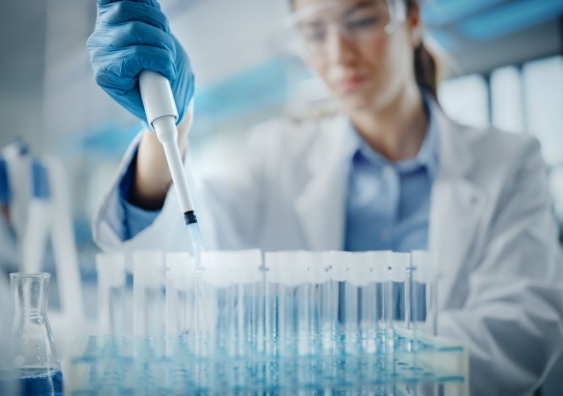Funding for immunocompromised COVID-19 booster trial
Researchers at the Kirby Institute have received an MRFF grant to determine the best time for COVID-19 boosters for people starting immunosuppression.
Researchers at the Kirby Institute have received an MRFF grant to determine the best time for COVID-19 boosters for people starting immunosuppression.

Luci Bamford
The Kirby Institute at UNSW
0432894029
The Kirby Institute at UNSW Sydney has been awarded $2.75m by the Commonwealth government’s Medical Research Future Fund to undertake a randomised control trial of COVID-19 boosters among people commencing new immunosuppression.
It has been promptly recognised that more severe forms of immunosuppression and certain targeted therapies can reduce the efficacy of COVID-19 vaccination.
“During the third dose “booster” vaccine rollout, there was very little pre-existing data to guide the timing of booster vaccines in relation to the commencement of moderate to severe immunosuppressive treatments,” says Dr Sarah Sasson from the Kirby Institute, who will lead the research team working on the study, titled 'Comparing Immunisation-boosting Regimens for COVID-19 Upon Initiation of immunosuppressive Therapies' (CIRCUIT).
“There is agreement among the medical community regarding the importance of immunocompromised people receiving three doses of a COVID-19 vaccine. However, the optimal timing for booster doses in relation to the commencement of immunosuppression, which can affect the same immune cells that mediate the vaccine response, is not well understood.”
The researchers will work with participants who have either haematological malignancies, for example leukaemia or lymphoma or an autoimmune/inflammatory condition such as rheumatoid arthritis or inflammatory bowel disease.
“People with these conditions are at an increased risk of complications from COVID-19, so it’s important that they are optimally vaccinated and boostered to provide the best possible protection from infection,” says Dr Sasson.
“Treatments such as chemotherapy and bone marrow transplantation that supress the immune system have the potential to weaken the effect of a booster. What we want to know is how to best time vaccination and immunosuppressing treatments to ensure the best outcomes for our patients.”
The Kirby Institute will partner with the University of Sydney, Western Sydney University as well as Western Sydney, Sydney and South Eastern Sydney Local Health Districts to determine whether providing vaccine boosters to this population immediately before the immunosuppression induction period will provide better protection from COVID-19 than a booster administered six months after the initiation of immunosuppression.
Patients will be recruited through Westmead Hospital, Blacktown Hospital, Concord Hospital, St Vincent’s Hospital and Royal Prince Alfred Hospital.
“There have been incredible strides made in developing COVID-19 vaccines that protect most people from severe disease and death. We are excited to work with such a motivated group of clinicians, scientists and patient representatives across Sydney to undertake this research, which will help ensure that people who are immunosuppressed are offered the best protection they can be through vaccination.
The Chief Investigators on the grant are Dr Sarah Sasson, Prof. Anthony Kelleher, A/Prof. Kathy Petoumenos, Prof. Miles Davenport, Prof. Judith Trotman (University of Sydney and Concord Hospital), A/Prof. Fabienne Brilot (Kids Research Westmead and University of Sydney), A/Prof. Stuart Turville, A/Prof. Nada Hamad (St Vincent’s Hospital), A/Prof. Rowena Bull, Prof. Golo Ahlenstiel (Blacktown Hospital and Western Sydney University).